The best Specialized shoes for gravel riding

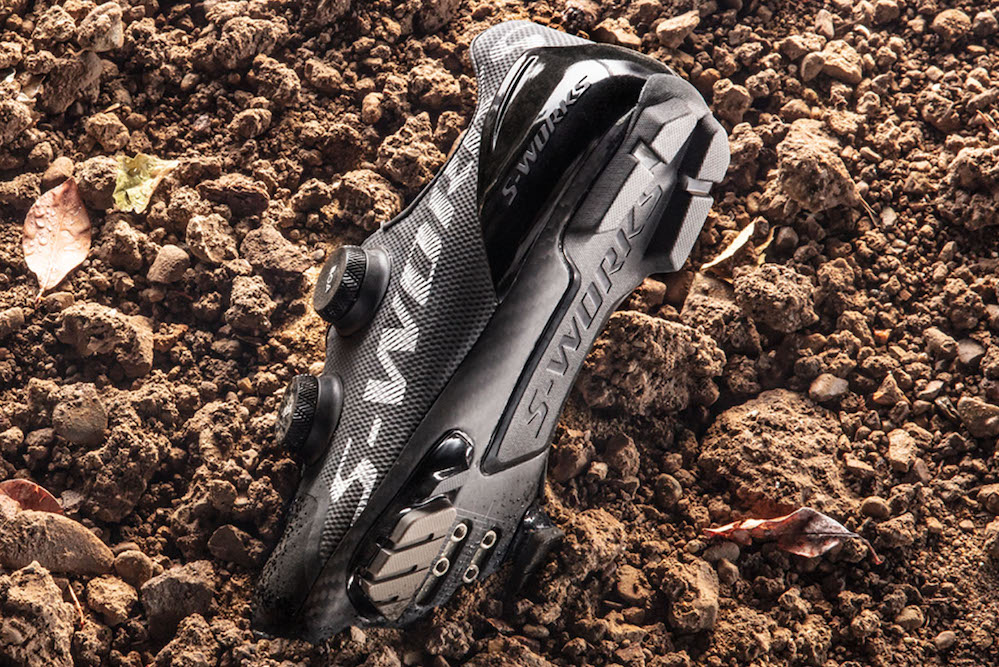
Specialized offer a wide range of footwear great for gravel riding - and we have the rundown on what products will be right for you.
All the shoes listed are designed with Specialized’s Body Geometry technology, which includes raising the midfoot to disperse hotspot- and numbness-causing pressure, leveling out the footbed so your inner ankles are supported, and outsole-integrated arch support (read more about Body Geometry here).
Depending on your needs, you may be best served by a road style shoe. If, on the other hand, your gravel rides include some hike-a-bike terrain or singletrack, mountain bike shoes may be the best choice. We’ve organized and distilled the options to help you make an informed purchase.
The Best Specialized Road Shoes for Gravel Riding
Specialized Torch Line
The Torch is Specialized’s road shoe line, which comes in three performance levels: Torch 1.0, Torch 2.0, and Torch 3.0.All three models have a sleek outsole with a small heel tread for traction when walking.
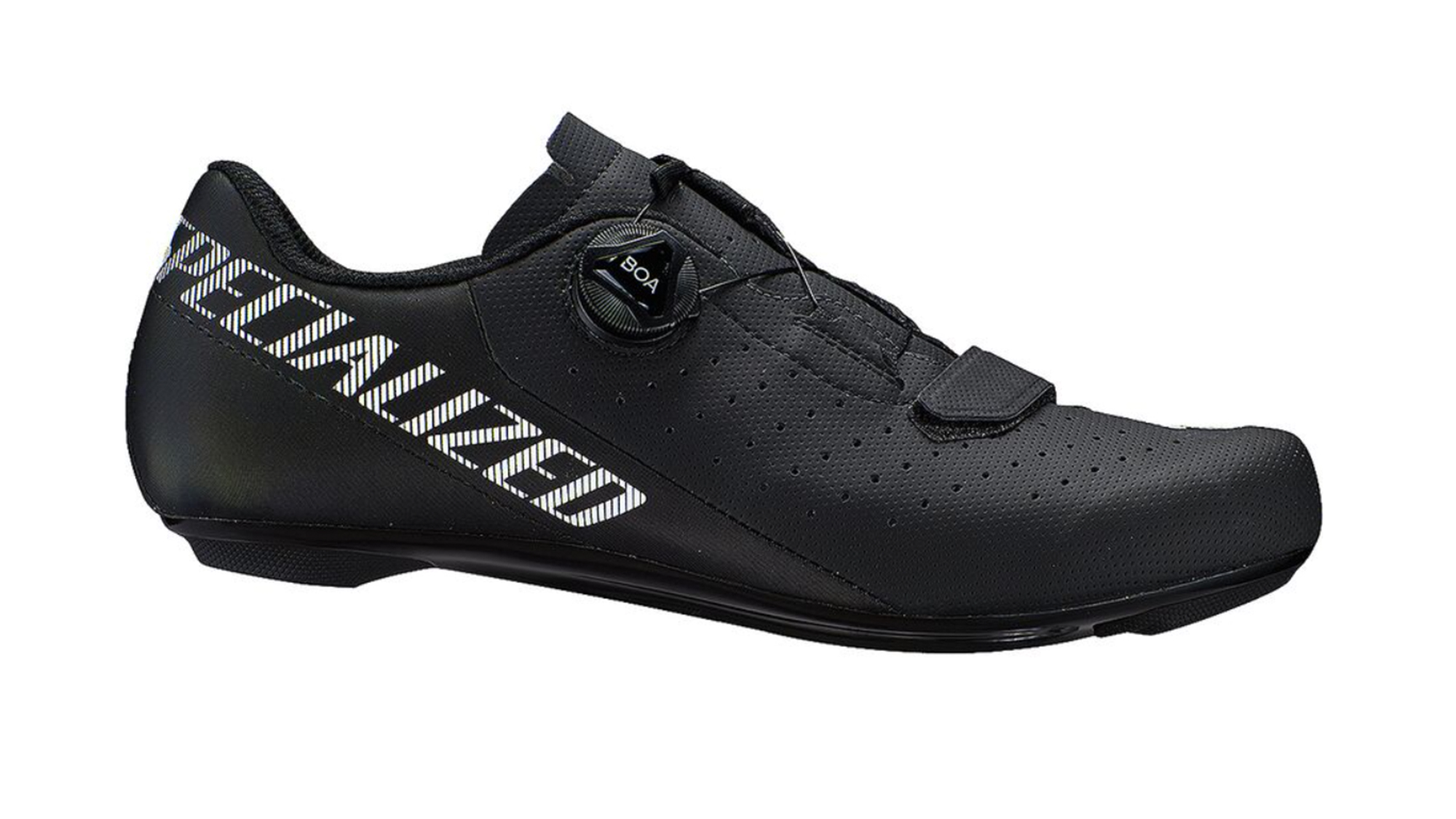
Reasons to buy
Reasons to avoid
The Torch 1.0 has a moderately-stiff sole made of injection-molded nylon composite, geared more towards comfort for long hours in the saddle than pure power transfer. Its supple upper snugs around your foot with one Boa dial and one velcro strap, and comes in white, black, red, and hi-viz yellow.
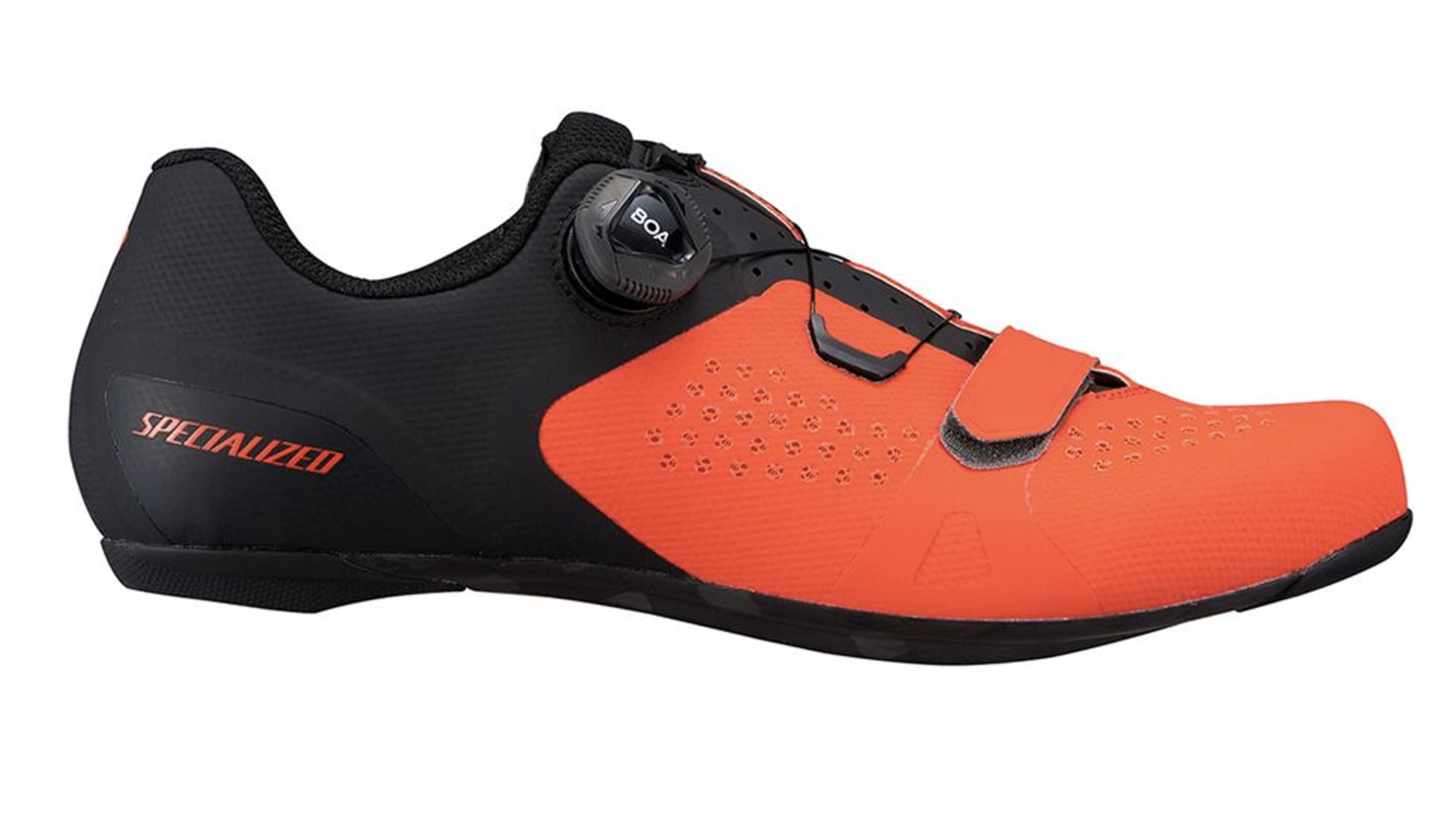
Torch 2.0
The next model in the line is the Torch 2.0 ($160), which features the same upper and closure system as the1.0, but includes a carbon sole for more stiffness and is available in a wide version, as well as half sizes. It's pretty beautiful, too.
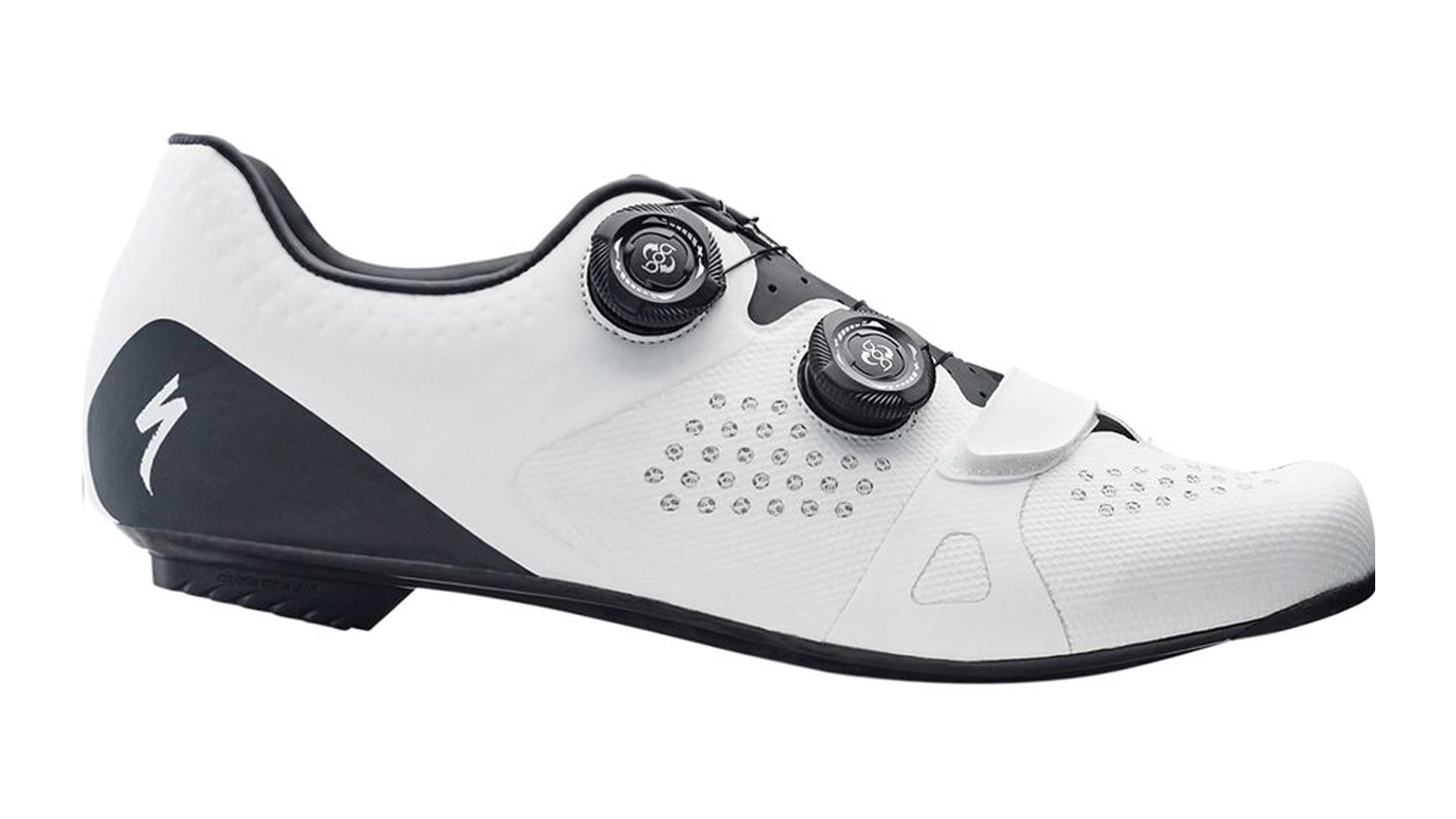
Reasons to buy
Reasons to avoid
A step above that one is the Torch 3.0 ($225), boasting a two-boa and velcro closure system, a mesh-and-TPU upper for better breathability, a tight heel cup made from synthetic leather, and the stiffest carbon sole out of the three for the best power transfer.
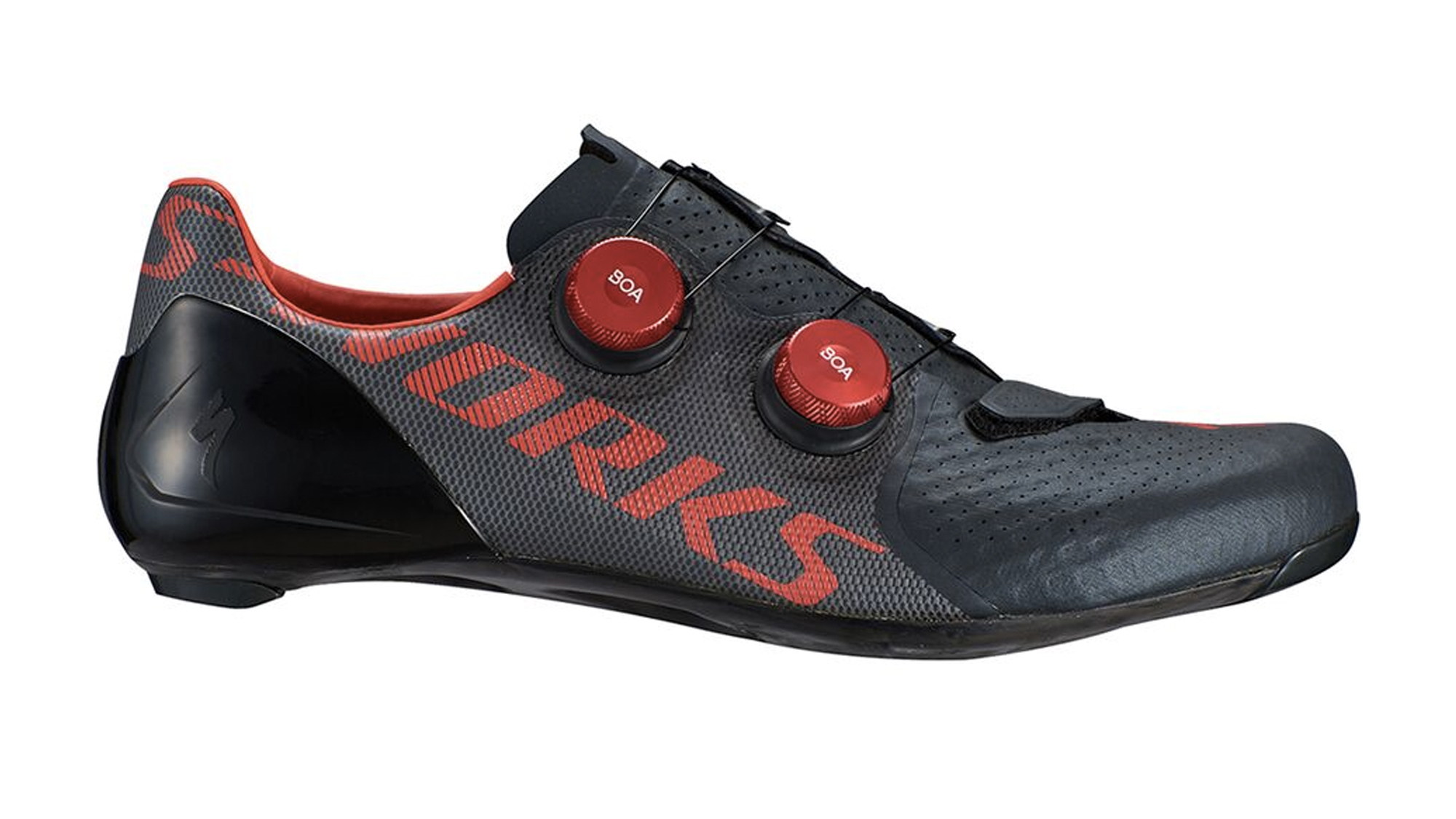
Reasons to buy
Reasons to avoid
The S-Works 7 is the lightest, stiffest, toughest Specialized shoe you’d want out on a ride that mixes both road and gravel. The super-stiff sole allows for highly efficient power transfer as you put the hammer down and leave your pals in the dust.
A double-boa and velcro closure ensures an articulated fit, and a grippy heel cup keeps your feet in place no matter how many watts you’re throwing down. For getting off the bike and walking around, the small heel pads offer a little bit of traction on cement or linoleum, and replacement heel pads are available too. The S-Works 7 Road is available in half sizes, as well as a narrow version.
Specialized Mountain Bike Shoes for Gravel Riding
Specialized Recon MTB Shoe Line
The Recon is Specialized’s line of mountain bike shoes that, like the Torch, is available multiple levels of price and performance. All three versions feature a low-profile, durable upper and a knobby tread for excellent traction when you gotta hike-a-bike or set up camp.
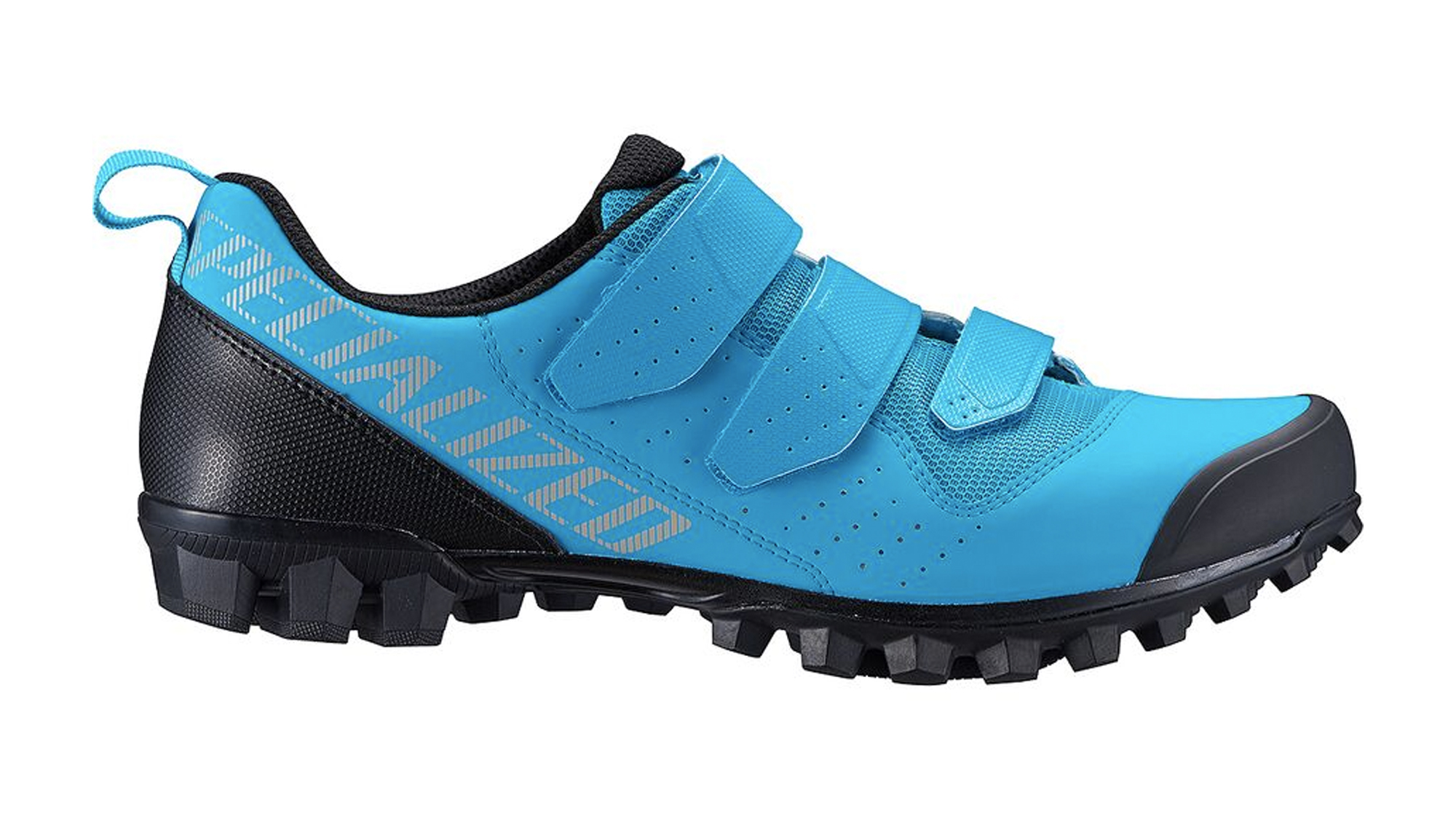
Reasons to buy
Reasons to avoid
The Recon 1.0, the most comfort-oriented shoe in the Recon line, has a triple velcro-strap closure and a grippy TPU outsole great for walking on all kinds of dirt and gravel terrain. Reviewers reported that it’s stiff when you pedal, but flexible when you walk, an ideal combination for gravel rides, bikepacking, or all-day off-road exploration.
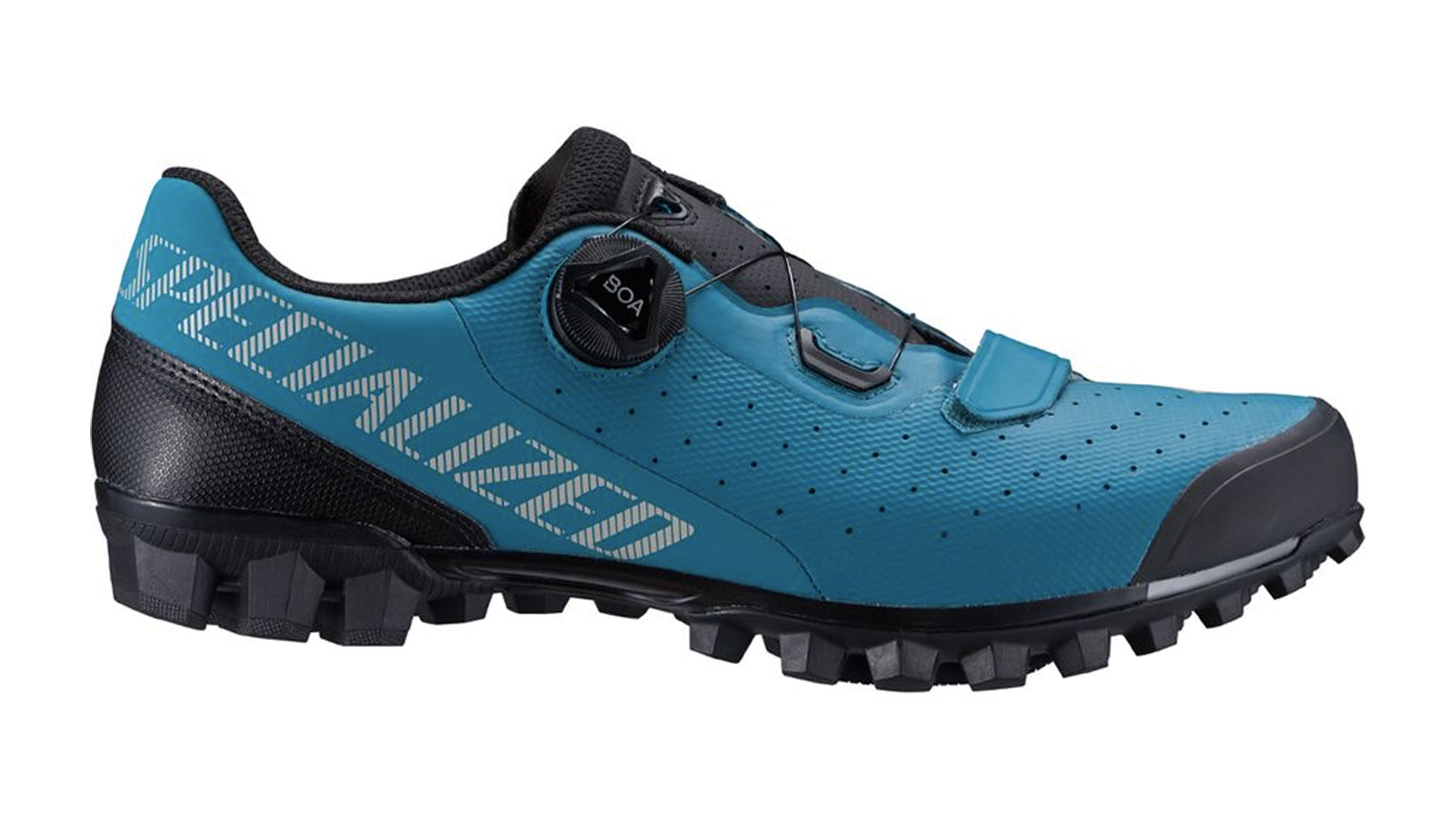
Reasons to buy
Reasons to avoid
The next model up is the Recon 2.0 MTB Shoe ($160), striking a balance between comfort and efficiency. It has one Boa dial and one velcro strap for getting a secure fit, and a stiffer sole, tackier sole than the 1.0 for better power transfer and ground traction. This middle-of-the-road option comes in wide and in half sizes.
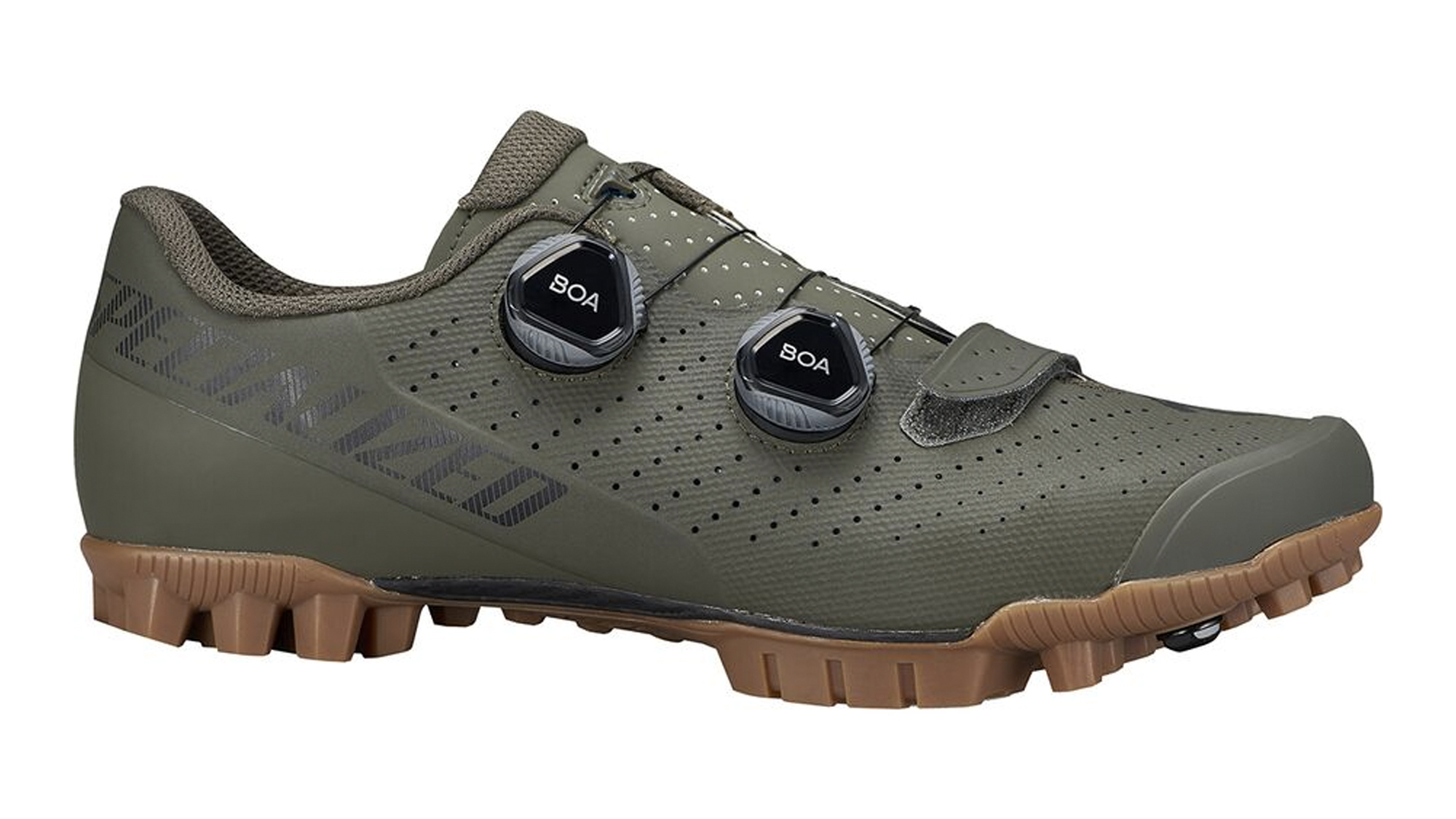
Recon 3.0
The stiff, aggressive Recon 3.0 ($225) closes with two Boas and a velcro strap, and the smartly-designed carbon sole still has a bit of toe flex for easier walking, but enough stiffness to facilitate direct power transfer when you’re pedaling. It also has the same extra-tacky rubber outsole as the 2.0 for traction. Fully-welded seams make for a comfortable upper with no wrinkles.
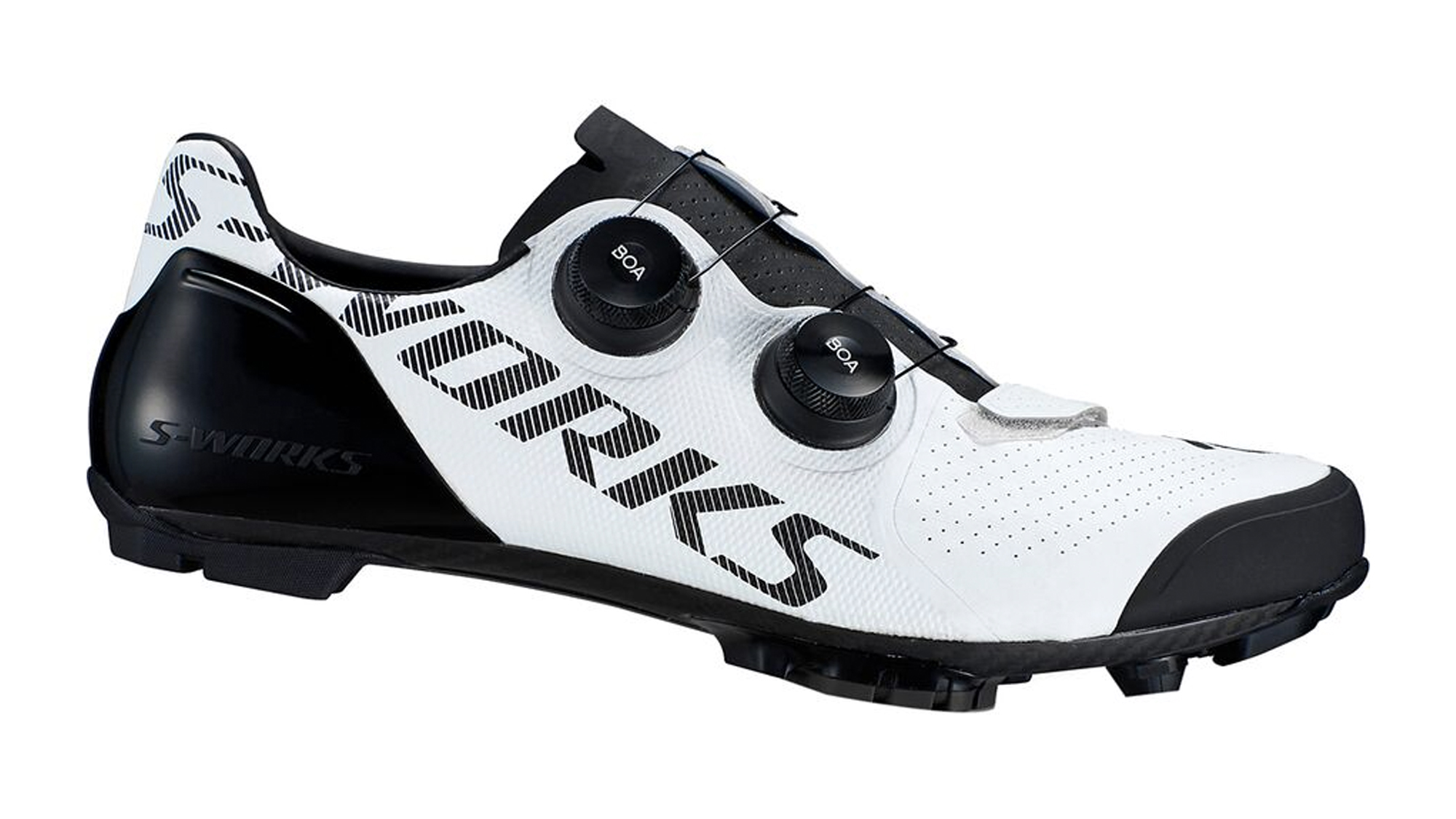
Reasons to buy
Reasons to avoid
Specialized’s highest-end mountain bike shoe, the S-Works Recon, is the brand's lightest and stiffest-soled mountain bike shoe, and - of course - most expensive option. The carbon sole maximizes power transfer so almost every bit of effort you put into the pedals is translated into speed.
The upper is made of a strategic sandwich of mesh layers, that stretch where you need them to and are stiff where you don’t, creating a comfortable, secure, and efficient foot-to-bike connection. Two boas and a velcro closure allow the shoe to hug your feet a customizable amount, and the ergonomic heel cup construction keep your feet from slipping out. You can also get a wide version to find your perfect fit.
Specialized Gravel Shoe Buying Guide
Should I get a road shoe or a mountain bike shoe for gravel riding?
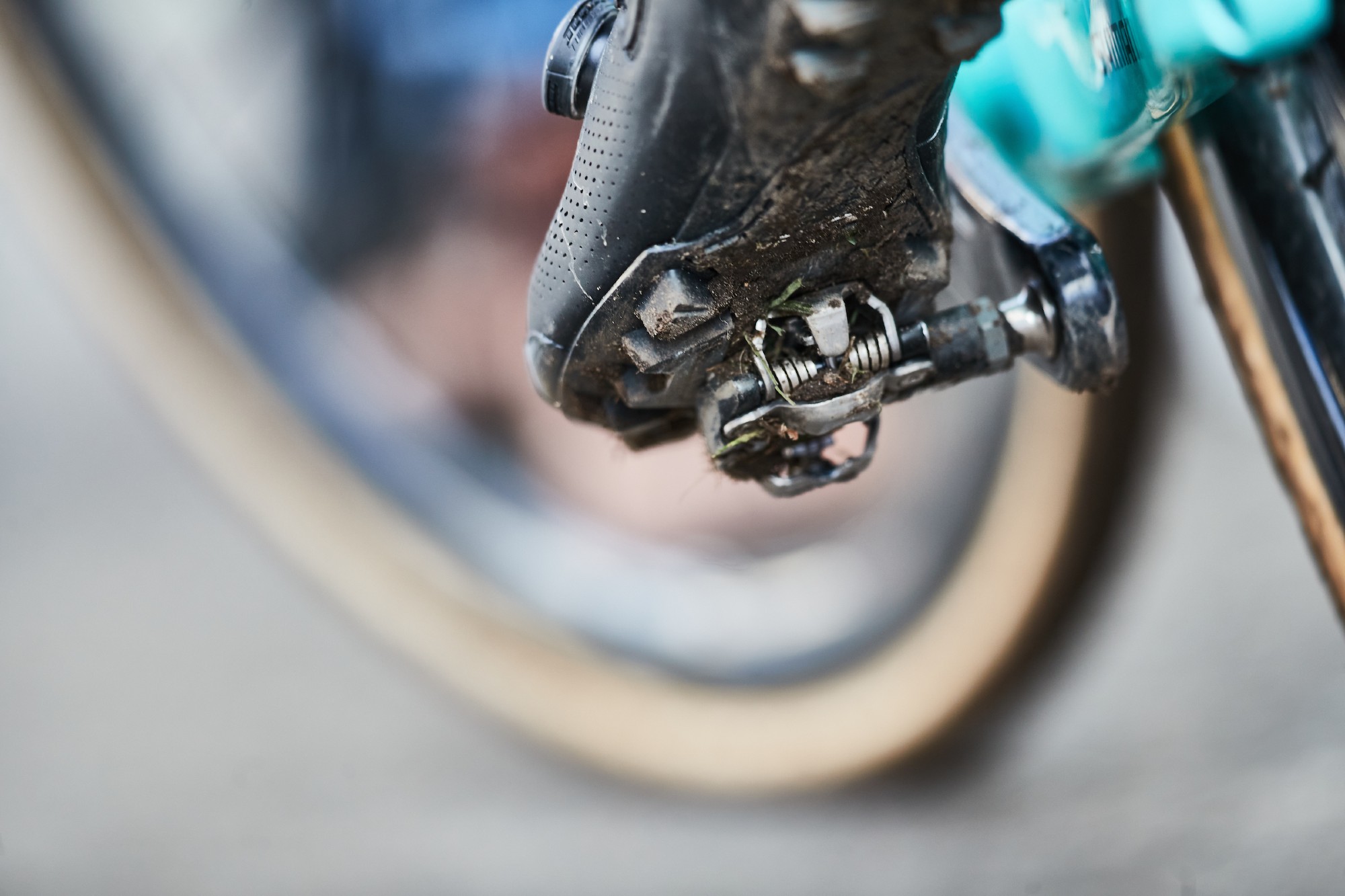
It depends on how much time you’ll be spending off your bike. How much walking you do (or don’t do) at stops along your ride, and what kind of surface that will be on will help determine if you’ll be better suited by road or mountain-bike shoes on your gravel rides.
If most of your rides start and end on pavement with a few gravel sections added in, but most stops are in paved parking lots, your rides would probably benefit from a pair of road-specific cycling shoes. Road shoes typically feature a smoother sole with a subtle heel tread for walking around when you get off your bike.
Mountain bike shoes, on the other hand, feature a thicker tread the whole way around the sole for excellent traction on all surfaces. This makes them ideal for rides with lots of gravel, sections where you might have to hike-a-bike, and bikepacking. If you plan to race your bike and want to prioritize power transfer over comfort, a shoe with Boa closures and carbon sole will be beneficial, which are available in both road and mountain styles so you can choose the one that suits your walkability preferences.
Related: Best gravel bike pedals
What is the difference between Boas and Velcro?
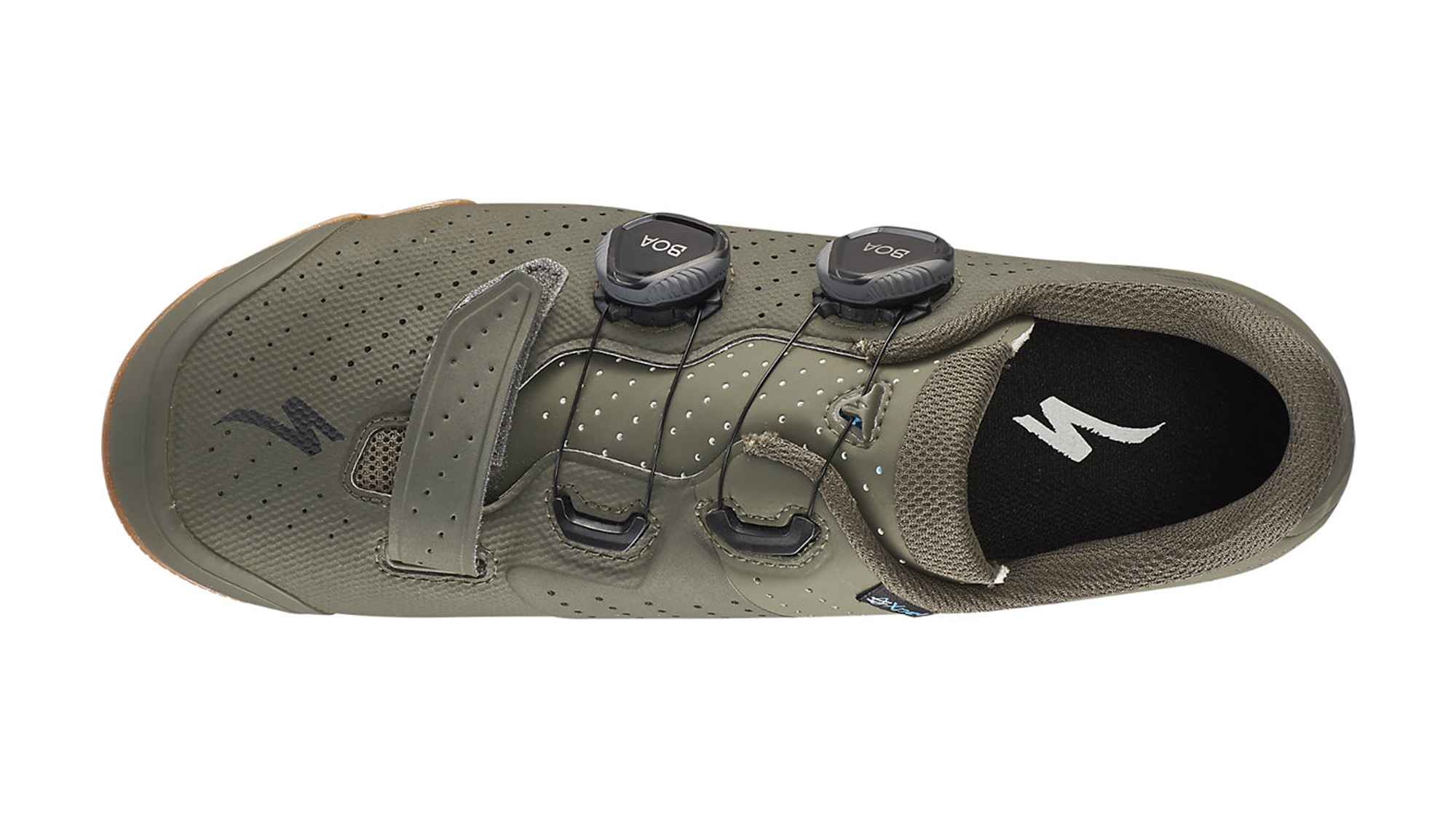
Boas can achieve a tighter, more precise fit. They work by reeling in a non-stretch wire that usually runs along the top of the shoe like laces, cinches the two sides of the upper together. Each click of the dial tightens the shoe by a very small increment, pulling evenly on the upper from all angles, allowing the rider to get a super-precise fit, more so than you would with velcro that can only pull so tight.
Because the dial can always reel the cord in tighter, they also don’t wear out as quickly as velcro straps do, which can stretch out over time making it harder to get an ideal fit after a while. But velcro is less expensive and lighter than Boas, and much less breakable.
The latter is something to consider if you’ll be doing lots of off-the-grid, backcountry riding with no way to fix them in case something happens to them.
>>> Specialized bike range: which model is right for you?
Is the more-expensive shoe automatically a better purchase?
Not necessarily. This list features shoes from both styles along a range of prices to suit your needs. And keep in mind the more-expensive option might not necessarily be what you’re looking for: in both the Torch and Recon lines, the second-tier model is the one with the widest range of size options.
You also might want a shoe with a more flexible sole for a more forgiving, comfortable ride and easier time walking around, and those will be the less-expensive mountain bike shoes made with non-carbon soles.
The latest race content, interviews, features, reviews and expert buying guides, direct to your inbox!

Riley Missel is an American freelance writer, editor, and digital storyteller based in the Southwest. Her byline has appeared in Lonely Planet, Outside, Self, VeloNews, Cycling Weekly, Bicycling, Runner’s World, Road Bike Review, Mountain Bike Review, and Dirt Rag.